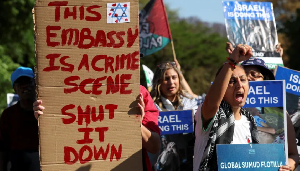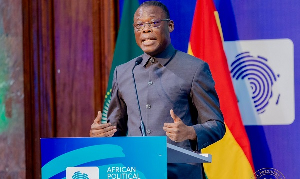A phase one of a Comprehensive Programme Report which will serve as a roadmap to generate electricity supply from a nuclear source in Ghana is expected to be submitted to Cabinet later this month.
The report, which is awaiting parliamentary approval and endorsement by the International Atomic Energy Agency (IAEA), is also expected to usher in the phase two of a nuclear source exploration, which involves feasibility studies from next year.
Mr Theophilus Nii Okai, the Executive Director of Nuclear Power Ghana (NPG), speaking to reporters in Accra said Ghana had chalked up some leaps in its pursuit to build a nuclear plant which had the potential to transform the energy sector.
“We are aware of the energy crisis the country faced in the recent past. We need what is called a stable base-load power supply. If you have that, you get a certain level of reliability in your network.”
“A base-load is a massive power plant that can run for months and months without shutting down. A nuclear power plant can run for 24 months without interruption. There are even some that have gone beyond that,” he explained.
Making a case for nuclear energy exploration, Theophilus Nii Okai said nuclear power had the benefits of very low operating costs, zero carbon emission, reliable power generation, huge employment opportunities and stable fuel supply.
The Executive Director further explained that for Ghana to begin the operation of a nuclear power plant, it needs to meet three IAEA milestones, which could take from 10 to 15 years and meet rigorous 19 infrastructure requirements including safety management, regulatory framework and radiation safety.
Ghana’s nuclear project history
Ghana started exploring the possibility of harnessing nuclear energy for power generation in 1963 when it launched the reactor project under the watch of the Ghana Atomic Energy Commission (GAEC).
However, the dream stalled in 1966 with the coup that tumbled Dr. Kwame Nkrumah, but a series of erratic power supply as a result of energy crisis from the 1980s and more recently from 2012 to 2016 rekindled the discussion on nuclear power generation.
General News of Thursday, 3 October 2019
Source: www.ghanaweb.com













